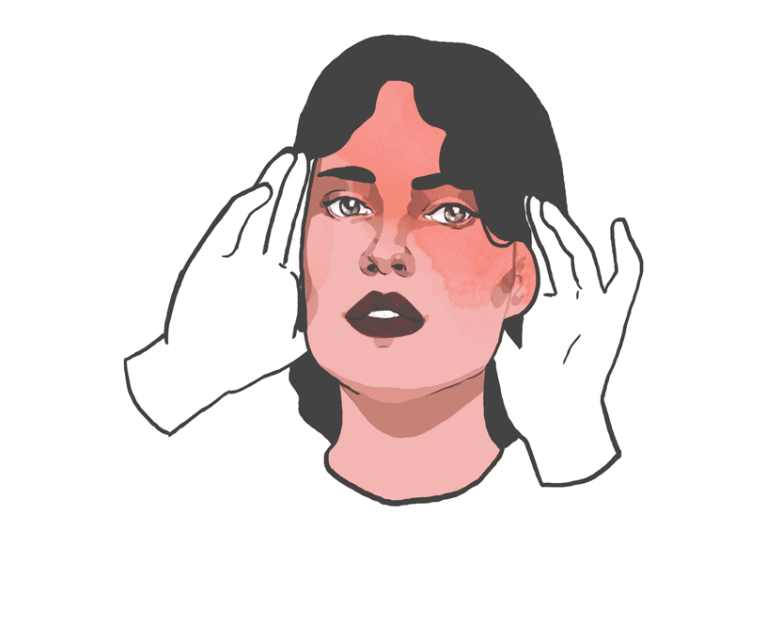You Are Not Here to Please Others

If someone doesn’t like you or if they don’t get on with you, they don’t have to pay you attention if they don’t want to, they can distance themselves if they want. You are not here to please others nor to tolerate the intolerable. Always choose calm distance over false hypocrisy.
Experts in so-called interpersonal psychology (who study people’s links with their closest social contexts) say that, on average, of all the people we cross paths with in a day, 10% of them wouldn’t like us if we were to meet them. That is to say, they wouldn’t fit into our personal maps or the jigsaw puzzles of our life.
“I don’t write to please everyone. Nor to displease. I just write to disturb.”
In the same way that over the course of a day we carry out little “personal hygiene” routines to maintain our health and appearance, it is also necessary to start practicing what is known as “mental hygiene”. One of its first proposals is as simple as it is essential: don’t try to please everyone. It is a totally useless source of suffering.
That said, not pleasing everyone doesn’t mean that we should react flatly and severely, marking our territory. At the end of the day, co-existing shouldn’t be so complicated. It is based on just “being” and “letting be”, or “don’t do to me what you don’t want for yourself”.
We need to be skillful architects of the kind of respectful and constructive sincerity where nobody ends up hurt. So that we no longer turn to that false hypocrisy that we all see every day in our closest contexts.
We invite you to reflect on this.

You aren’t here to please others, even those who are important
Sometimes you might not care less whether certain people like you or not. This is because there is no significant bond, because there is no emotional connection to that particular person. But more complex situations arise when we realize that people who are very close to us don’t like us or don’t gel with us.
There are essential moments that are as bitter as they are complex. Let’s imagine an adolescent or a young person who is just becoming an adult, who is becoming fully aware that their way of being, their thoughts and values, don’t fit with those of their parents. Equally, it can also be painful to perceive that someone we’re attracted to doesn’t like us. That we lack the “spark” to create mutual understanding, attraction, intimacy.
If we are experiencing these situations today, it is necessary for us to understand the following:
- What other people think of us should never be more important than what we think of ourselves. Don’t let your self-esteem be sustained by any kind of hierarchy. If your family doesn’t like your character, the true source of the problem is in them, not you. So don’t distance yourself from your truth, from what defines you, from what gives you light, life and character.

Another aspect to bear in mind is the constant search for approval that many people need from their environments to feel that they are truly “worth something”. Never let yourself be drawn into this dangerous way of thinking. The words of others do not define you, your self-love defines you.
- It is necessary for us to know clearly who we are, what defines us and what are our reasons to feel proud of ourselves. It is also advisable to give ourselves the full right to be imperfect.
- What others think or believe should never come above your own beliefs, expectations or values.
- You should be capable of practicing honesty with yourself. Understand that, if someone doesn’t like you, you don’t need to force the impossible nor settle for falsities. Forced love or affection has no use, it is poison.
So, remember, it is not in our hands nor is it our obligation to force ourselves to please everyone. If someone doesn’t respect you just as you are, it means they don’t love you as you deserve to be loved.
The subtle weave of hypocrisy
There are hypocrites out there disguised as best friends. There are false loves that navigate in bitter oceans charged with hypocritical winds. There are also fathers and mothers who pride themselves for their great qualities as educators, when in reality they don’t even know the needs of their own children.
“When hypocrisy starts to be of very poor quality, it is time to tell the truth”
-Bertolt Brecht-
The subtle weave of hypocrisy is present in many of our closest contexts. In fact, sometimes we’re even able to identify it and tolerate it. For sure there is someone close to you who reminds you every day how much they like you, how well they get on with you and how admirable you are. “You do everything well!”, they tell you with an air that exudes a certain falseness, a certain scent of uncomfortable hypocrisy.

Don’t do it, don’t permit these behaviors. In the short term they are suffocating and in the long term they are destructive. In fact, the word hypocrite derives from “hypokrisis” which means pretend, act or speak with masks. It is worth bearing in mind that the linguist and social analyst Noam Chomsky said that hypocrisy is one of the worst sicknesses of our society.
When taken to or applied in more complex spheres, it is capable of promoting injustices like inequality, war and all sorts of violations within the perverse framework of deception. This is not acceptable. This habit must be broken and the masks must be dropped in order to coexist with greater integrity, greater respect.
If we don’t like something or it seems unjust to us, we shouldn’t lower our head and give in because others expect us to. If someone doesn’t like you, let them distance themselves, let them leave if they want to, but don’t let the ritual dance of falsity unfold. Don’t let others bring you clouds of hypocrisy when you defend the clarity of dignified and, of course, respectful hearts.
If someone doesn’t like you or if they don’t get on with you, they don’t have to pay you attention if they don’t want to, they can distance themselves if they want. You are not here to please others nor to tolerate the intolerable. Always choose calm distance over false hypocrisy.
Experts in so-called interpersonal psychology (who study people’s links with their closest social contexts) say that, on average, of all the people we cross paths with in a day, 10% of them wouldn’t like us if we were to meet them. That is to say, they wouldn’t fit into our personal maps or the jigsaw puzzles of our life.
“I don’t write to please everyone. Nor to displease. I just write to disturb.”
In the same way that over the course of a day we carry out little “personal hygiene” routines to maintain our health and appearance, it is also necessary to start practicing what is known as “mental hygiene”. One of its first proposals is as simple as it is essential: don’t try to please everyone. It is a totally useless source of suffering.
That said, not pleasing everyone doesn’t mean that we should react flatly and severely, marking our territory. At the end of the day, co-existing shouldn’t be so complicated. It is based on just “being” and “letting be”, or “don’t do to me what you don’t want for yourself”.
We need to be skillful architects of the kind of respectful and constructive sincerity where nobody ends up hurt. So that we no longer turn to that false hypocrisy that we all see every day in our closest contexts.
We invite you to reflect on this.

You aren’t here to please others, even those who are important
Sometimes you might not care less whether certain people like you or not. This is because there is no significant bond, because there is no emotional connection to that particular person. But more complex situations arise when we realize that people who are very close to us don’t like us or don’t gel with us.
There are essential moments that are as bitter as they are complex. Let’s imagine an adolescent or a young person who is just becoming an adult, who is becoming fully aware that their way of being, their thoughts and values, don’t fit with those of their parents. Equally, it can also be painful to perceive that someone we’re attracted to doesn’t like us. That we lack the “spark” to create mutual understanding, attraction, intimacy.
If we are experiencing these situations today, it is necessary for us to understand the following:
- What other people think of us should never be more important than what we think of ourselves. Don’t let your self-esteem be sustained by any kind of hierarchy. If your family doesn’t like your character, the true source of the problem is in them, not you. So don’t distance yourself from your truth, from what defines you, from what gives you light, life and character.

Another aspect to bear in mind is the constant search for approval that many people need from their environments to feel that they are truly “worth something”. Never let yourself be drawn into this dangerous way of thinking. The words of others do not define you, your self-love defines you.
- It is necessary for us to know clearly who we are, what defines us and what are our reasons to feel proud of ourselves. It is also advisable to give ourselves the full right to be imperfect.
- What others think or believe should never come above your own beliefs, expectations or values.
- You should be capable of practicing honesty with yourself. Understand that, if someone doesn’t like you, you don’t need to force the impossible nor settle for falsities. Forced love or affection has no use, it is poison.
So, remember, it is not in our hands nor is it our obligation to force ourselves to please everyone. If someone doesn’t respect you just as you are, it means they don’t love you as you deserve to be loved.
The subtle weave of hypocrisy
There are hypocrites out there disguised as best friends. There are false loves that navigate in bitter oceans charged with hypocritical winds. There are also fathers and mothers who pride themselves for their great qualities as educators, when in reality they don’t even know the needs of their own children.
“When hypocrisy starts to be of very poor quality, it is time to tell the truth”
-Bertolt Brecht-
The subtle weave of hypocrisy is present in many of our closest contexts. In fact, sometimes we’re even able to identify it and tolerate it. For sure there is someone close to you who reminds you every day how much they like you, how well they get on with you and how admirable you are. “You do everything well!”, they tell you with an air that exudes a certain falseness, a certain scent of uncomfortable hypocrisy.

Don’t do it, don’t permit these behaviors. In the short term they are suffocating and in the long term they are destructive. In fact, the word hypocrite derives from “hypokrisis” which means pretend, act or speak with masks. It is worth bearing in mind that the linguist and social analyst Noam Chomsky said that hypocrisy is one of the worst sicknesses of our society.
When taken to or applied in more complex spheres, it is capable of promoting injustices like inequality, war and all sorts of violations within the perverse framework of deception. This is not acceptable. This habit must be broken and the masks must be dropped in order to coexist with greater integrity, greater respect.
If we don’t like something or it seems unjust to us, we shouldn’t lower our head and give in because others expect us to. If someone doesn’t like you, let them distance themselves, let them leave if they want to, but don’t let the ritual dance of falsity unfold. Don’t let others bring you clouds of hypocrisy when you defend the clarity of dignified and, of course, respectful hearts.
This text is provided for informational purposes only and does not replace consultation with a professional. If in doubt, consult your specialist.







